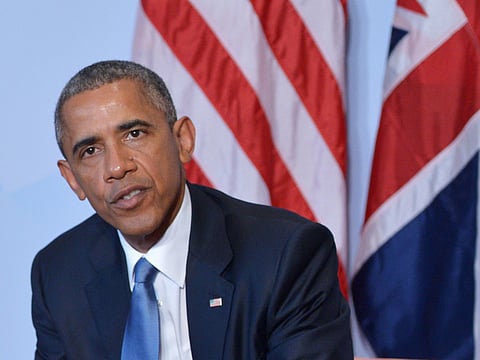Restoring America’s standing through trade
The United States needs an active trade agenda to strengthen its own economy within the context of international economic growth

At the end of the Second World War, with the world still reeling from the devastating conflict, the United States set out to build a new foundation for peace and prosperity. The three pillars of that strategy were American military strength, support for the aspirations of free peoples and a belief that free markets, bolstered by free trade, would increase prosperity for all.
That new international order was wildly successful in achieving its goals. After five decades of sustained US commitment, the Cold War ended and the Soviet Union collapsed, swelling the ranks of free peoples and more open economies, lifting millions out of poverty and creating new allies in the defence of freedom.
Today, that order is under strain. From the expansion of the threat of Islamic extremism, to Russia’s challenge to peace and stability in Europe, to Iran’s destabilising influence in the Middle East, the challenges are multiplying.
Then there is the impact of a rising China, creating risks of a different kind in the Asia-Pacific region and beyond. A growing Chinese economy built on openness and fairness would most assuredly strengthen the world economy and, by extension, the US economy. That was the hope that animated the decision to admit China to the World Trade Organisation in 2001, embedding it in the rule-based global economy and pushing it toward greater economic openness.
Yet, that hope is clouded today by China’s assertiveness in Asia. Our allies, despite growing economic interdependence in the region, look nervously at the growth of Beijing’s military power and activity. From Tokyo to Manila, our friends anxiously await signals that the United States intends to remain the dominant force in the Asia-Pacific.
Unfortunately, questions about America’s commitment to sustaining the very global system we helped create are frequent and growing. The word “disengagement” is more often used today when discussing the United States’ role in the world than at any time in recent memory. It is in that context that President Barack Obama’s request for trade-promotion authority and his desire to negotiate new agreements in Asia and Europe should be understood.
Trade-promotion authority is a critical tool in the conduct of US diplomacy. It does not strip Congress of a role in negotiating trade agreements. It explicitly allows Congress to outline principles that must be heeded during negotiations and to exercise its constitutional duties by voting on negotiated agreements. Congress has used that authority to shape the direction of trade agreements over decades — and without it those agreements would not have been possible. Our negotiating partners will not sign trade agreements with the United States if those agreements will, after the fact, be subject to line-by-line amendment during ratification.
This is not a matter of trusting the inhabitant of the White House, whoever that may be. For 40 years, trade-promotion authority (also called fast-track authority) has effectively balanced the role of the executive and legislative branches. When it has lapsed (1995 to 2001 and 2007 to the present), the United States has had to sit on the sideline. In those periods, more than 100 regional trade agreements were negotiated without us. We cannot afford to have that continue — especially now.
The post-Second World War leaders who brilliantly designed an international order to support free markets understood that either we would write the rules of the game or someone else would. They were haunted by the protectionism of the 1930s that worsened the Great Depression and arguably contributed to the Second World War. They believed that free trade was an essential pillar of economic liberty, prosperity and peace.
They were right then, and the same is true today. The United States needs an active trade agenda to strengthen its own economy within the context of international economic growth.
That is an important outcome in its own right, given continuing concerns about the health of the US economy. But the larger issue is what trade- promotion authority says about America’s role in the world. Our allies will read a failure to renew this authority as further evidence that we have lost interest in sustaining the international order. They already worry that others, China in particular, stand ready to fill the vacuum.
Free trade is no substitute for military strength or for giving voice to those who still seek liberty. Trade-promotion authority and new trade agreements will not alone solve the global challenges that we face. Yet trade is an essential element of a strategy that long ago placed faith in the proposition that the future would belong to free peoples and free markets.
That is why I urge Congress to renew trade-promotion authority. The United States cannot afford to be sidelined, ceding the ground to those who do not share our values and our interests. Future generations would pay dearly for that choice.
— Washington Post
Rice was US secretary of state from 2005 to 2009.


